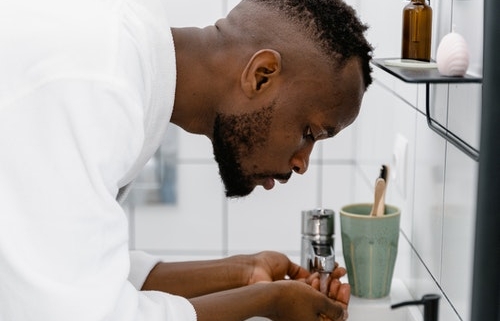Self-Care Tips While in Addiction Recovery
Table of Contents
Addiction and substance misuse can quickly take over your life, but you are not alone in this struggle. Millions of people across the United States struggle with this issue, and it has a way of taking away everything you once knew about yourself and turning it into something unrecognizable.
If you’re in addiction recovery, self-care can be complicated and challenging for many reasons. What is important to know is that there are ways to get through addiction recovery with self-care in mind. The following guide shows you how to make self-care part of your routine during addiction recovery.
What Self-Care Really Means
We always tell each other, “Take care of yourself!” But the truth is that doing it is not always self-evident or that easy to do. The marketing people would have us think that buying the right skin cream or taking a weekend getaway to some exotic locale is all it takes for us to be able to check that box for “self-care.” But there’s more to it than that!
Self-care means different things to different people. For some, self-care might mean getting enough sleep, a delicious meal or seeing a movie with a friend after a really stressful week. To others, it could be gardening outside in pretty weather after shaking off the depression that kept you cooped up indoors.
Taking care of yourself may also feel selfish, but it shouldn’t make you feel that way. It’s necessary to love and accept ourselves through self-caring since it’s so good for our health and well-being. Plus, it’s key to getting and staying substance-free.
Benefits of Self Care and Addiction Recovery
Self-care is essential in addiction recovery because it helps to restore balance, promote healing and strengthen our ability to cope with stress. It can also help us connect with our authentic selves again after years of struggling with addiction.
Self-care allows us to focus on our own needs for change instead of always being focused on others. What’s more? You only need a few minutes to do it every day.
8 Ways to Practice Self Care in Addiction Recovery
Below are 8 ideas and tips you can use to practice self-care in addiction recovery:
- Get enough sleep. Most people need around eight hours of sleep each night, so make sure to get to bed early enough to achieve this. Consider using a noise machine or earplugs if your environment is too noisy for you to fall asleep.
- Take a walk. Walking is good for your physical and mental health, so take some time to go outside each day and get in touch with nature.
- Meditate every day for a few minutes or listen to an audio recording of guided meditation with positive affirmations. It will help you feel more connected and focused on yourself in the present moment.
- Stay mindful. This practice helps you connect with the present moment. And experiencing thoughts and feelings in the moment gives you a chance to examine what’s really happening within yourself, allowing you to explore any emotions and thoughts you experienced during or after addiction.
- Set Boundaries. One of the hardest things for someone struggling to do is to set boundaries with groups of friends or family members that encouraged substance misuse. Remember: Cutting off communication with them is ok, and it is essential to protecting your sobriety and state of mind.
- Take time each day to just be alone. Being with others 24/7 isn’t realistic, so take some time each day to just be alone and relax. Time alone teaches us who we are deep down when we are sober. Therefore, feel free to go to new places and explore new activities solo including expressing yourself artistically. In fact, an artistic activity that allows you to express yourself freely without judgment is an excellent avenue to recovery.
- Connect with others in addiction recovery. When you’re feeling down, it can be helpful to reach out to others in addiction recovery for support. Talk about your struggles and what’s been going on in your life. You’ll likely find that others have gone through something similar and can offer valuable insight and advice.
- Achieve balance. Many individuals tend to stay busy and focus on one thing to avoid the temptation of alcohol and other substances. Unfortunately, this mindset is not constructive when you are in the early phase of recovery. Don’t focus too much on one facet of your life or it can leave you feeling overwhelmed and lead to relapse. Achieving balance in all facets of our lives (e.g., family, work, social, school) helps recovery.
Contact Annandale Wellness to Help with Your Self Care and Recovery Today
If you find that self-care is still a struggle for you, or if you feel like you need more help dealing with addiction and its aftermath, consider seeking out therapy from the qualified mental health professionals at the Annandale Behavioral Health in Los Angeles. Our therapists are trained to help you explore your emotions and thoughts so that you can gain a better understanding of what’s going on within yourself.
We offer a luxury rehab experience where you can learn how to practice self-care in addiction recovery. All our therapists are fully licensed and board-certified with years of experience. They use Psychiatric Treatment, One to One Therapy, Art Therapy for Addiction, Group Psychotherapy, Addiction Support, Dialectical Behavior Therapy (DBT), and more as part of a treatment plan that’s tailored specifically for you.
Call us for a free confidential consultation today at 855-778-8668. We look forward to talking to you and helping you on your journey to self-care, recovery, and growth!






